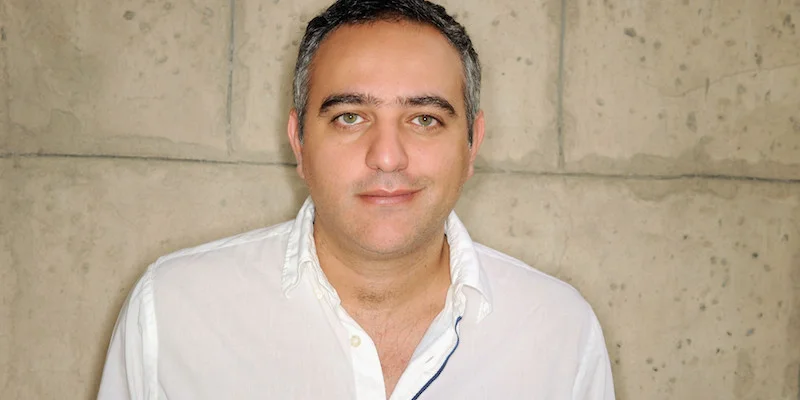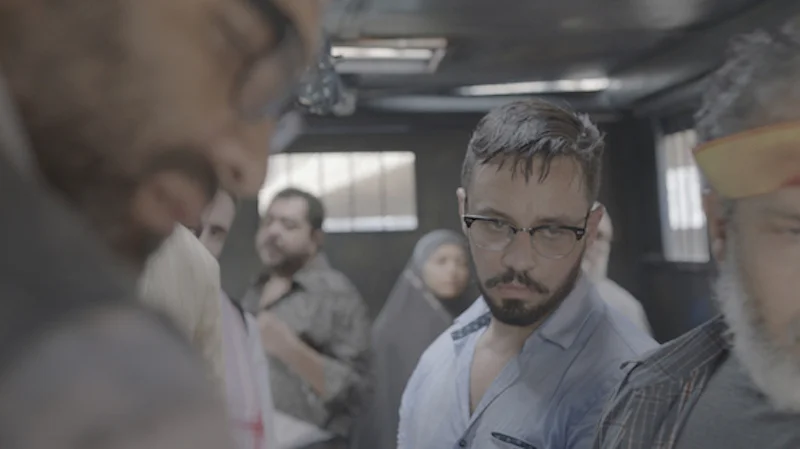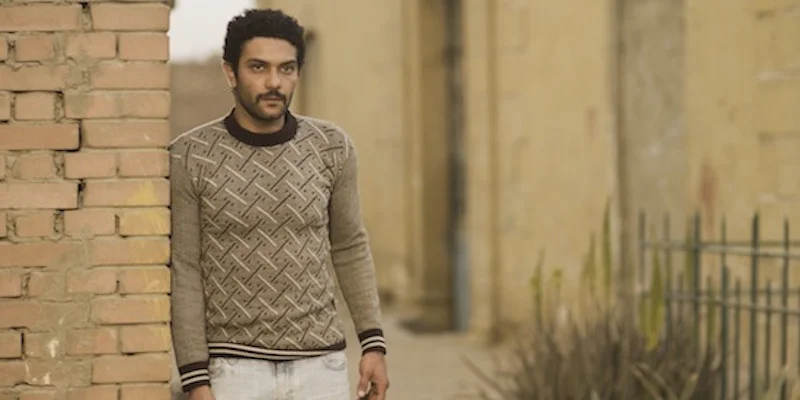Just over a month before the Festival de Cannes kicked off on the Croisette, an announcement rocked the world of Arab cinema: Egyptian producer extraordinaire Mohamed Hefzy would be the new head of the Cairo International Film Festival. There are many reasons why Hefzy is the perfect man for the job, since CIFF has had its share of troubles following the revolutions of the Arab Spring. Among them, that he's long been a great cinematic bridge between the Arab world and the West. Also to keep in mind, the movie business in Egypt has gone through changes that would have shut the industry down in most other countries, and yet out of those ashes it is thanks to a visionary producer like Hefzy that Egyptian films are now seen beyond the Arab world.
I can easily quote the 'Yomeddine' example -- a simple, straight from the heart indie-like film that competed for the Palme d'Or this year in Cannes. Yes, in Competition, in Cannes. Not bad for a debut feature film!
So knowing that Hefzy will be at the helm of the oldest and most prestigious festival in Egypt is great news to this lover of Arab cinema.
I first met Hefzy a few years ago and out of that face to face meeting came an interview that I'd like to revisit -- until we can catch up properly once again in Cairo of course. And there is also a great segment of this month's CNN 'Inside the Middle East' featuring Hefzy's wisdom on the industry and how it has finally come to reap its rewards.
So check out this video from CNN and then below it, read up on Hefzy in my 2014 interview.
Until about a year ago, I found little reason to watch modern Egyptian cinema. Besides a film like 'The Yacoubian Building', which offered glimpses into some well-drawn human characters, cinema from Egypt seemed like an inside joke I was forever destined to miss the meaning of.
Then I met filmmaker Mohamed Hefzy and began watching his Egyptian cinema. To Egyptian audiences he offers a new type of movie, modern and urban, while to the rest of the world a blend of wonderfully written characters and slice-of-life poetic interpretations of today’s land of chaos and humanity, so often watched on the news and yet so seldom understood. Hefzy and his company Film Clinic, along with the wonderful team at MAD Solutions who first brought him and his work to my attention, have shown me a new Egyptian cinema, one I not only understand and like but can relate to as a human being.
During the 10th Dubai International Film Festival I caught up with Hefzy, who is at once insightful, charismatically soft-spoken and incredibly direct.
You’ve been in films, either as a screenwriter or producer, for around eleven years, yet you’ve already become the go-to filmmaker for Egyptian cinema. How did you manage that in such a short while?
Mohamed Hefzy: To be honest, time management is one thing and just being really lucky with good people around me. Having a good team around me is always helpful. In Film Clinic, I have a good team, at Ismailia Film Festival I’ve managed to put together a nice group of people and as a script writer, well you know, it comes at a cost. Because as a script writer I don’t have a lot of time for writing scripts anymore. So I rarely exist as a script writer anymore and that’s something I obviously would have loved to do something about but I don’t have the time to do everything, so I’m not 100 percent successful in all those areas. I’m trying to juggle probably a bit too much.
A still from 'Clash' (2017) by Mohamed Diab
And you find that comes easily for you?
Hefzy: No, like I said it’s at a cost, because I don’t have a lot of time...
I mean, finding good people to surround yourself with?
Hefzy: I’ve been lucky, I get people just knocking on my door that I think are really talented and really good, and they’re smart and they know what they want so I’ve been able to use them. And I think there are a lot more. It’s just a question of how do you put together a system that brings the best out of everybody for the benefit of different projects.
Three and a half years since the Arab Spring, which brought a lot of attention to Egypt. But it also changed the landscape of cinema there, completely. Because for a while everything that has come out of Egypt has been about the revolution, in one way shape or form. A blessing or a curse?
Hefzy: As I producer I’ve been getting all kinds of projects thrown at me and I think a lot of them have not been successful in involving the revolution, and those are obviously the ones I didn’t do. I mean involving the revolution into their narrative. And I sometimes wonder about the motive for why that person is talking about the revolution. Is it political, is it just to try and get more attention to the film? I mean there are all kinds of reasons why someone would do that, and some stories are really honest, and the best ones are not involving the revolution in any direct way, but the really human stories that may have something to do with it, in a way that ties into the story...
Films like 'Rags and Tatters', which dealt with the revolution, in a very hands-on kind of way, but told a completely different story that we may have never know about in the West.
Hefzy: Yeah, that’s what I mean, exactly. But I’m making conscious decisions to try and stay away from the revolution, in my future films because I think we’ve said just about everything there is to say at this moment, knowing what we know and not knowing what we don’t. A film like 'Villa 69' was really fresh for me, to make a film and to release a film that has nothing to do with it. You don’t even know if it happened before or after and how many films do you watch nowadays in Egypt or Tunisia or in countries where revolutions have happened, or are happening, where you don’t know if this took place before or after? Because it’s irrelevant and it could take place anytime or anyplace.
A still from 'Villa 69' (2013) by Ayten Amin
How healthy is the film industry in Egypt right now?
Hefzy: There is an industry, it’s not very strong, there are two or three companies producing a lot of films, there’s three companies producing I think 70 percent of everything, and I’m not talking about Film Clinic. I’m talking about companies that make films for local demand, like the summer movies, which I don’t do as much of. I would like to make more of them, but not in the same way that you see them, yet I’d like to make more commercial films. But now that TV has come into the market I think you’ll see a boom in production in Egypt. Over the next year.
Also, you can tell by the revenues that some of the films make that if you try to show them outside of Egypt, people will just laugh at you. And it’s not just because they’re only relevant to our local urban culture but also because the quality has become so bad that I think it’s going to take a long time to educate people cinematically and culturally. Because it’s a cultural movement, you have to associate it with literature, theater, arts, general cultural awareness that has to grow, and return to what it was in the 60s and 70s when more people were cultured.
A still from 'Rags and Tatters' (2013) by Ahmad Abdalla
What I’m happy about is that we now have a chance to show more independent films where you get more really brilliant, talented ideas and new directors who just don’t have a place to show their films or don’t have access to TV broadcasters and theaters. And now I see all these initiatives that are being spoken about where independent films can get more financing, can get more exhibition space... 'Rags and Tatters' was an example of an independent release that I think went well, because we released it in seven screens, for a limited amount of time but it managed to get somehow into the mainstream media, the mainstream talk, it was being written about in all the papers and it was very heavily present in social media. Now there is a demand, a small niche market that wants to see serious films, different films, there is a demand... It’s a small market but I think, at least we’ve proven that they exist. If you can make ten thousand admissions maybe the next one will be twenty thousand, or if you manage to get more screens and more time maybe you can do even better.
And you get more films like that made, because people look at those figures and aren’t afraid anymore.
Hefzy: It also gives the TV broadcasters the courage to buy them and show them. We’re trying to change that perception that independent cinema is anti-public, it’s so unpopular that the public just doesn’t want to see it.
That independent cinema is a dirty little secret.
Hefzy: That’s right, so if we can change that perception then I think we will have more space to show our films.
Speaking of perception... As a filmmaker, do you feel a responsibility to help bridge cultures? A film like 'Rags and Tatters' went to Toronto, and it undeniably helped to bridge cultures there.
Hefzy: A festival is a good start, but I think it needs a bigger platform to really have an effect. And I think without distributors and exhibitors looking to give more space and more chances, and taking more chances on riskier films like that, I think that it’s going to be limited to festival audiences... We need a wider audience. It also depends on the stories you tell, how you’re telling them, and how distributors take risks for these films. A lot of distributors will only do that if they have subsidies from governments, to mitigate the risk. So there’s a political responsibility, especially in the West for governments, that, like in France, can give money to screen towards foreign films. That’s why there are so many foreign films being released in France, so if other countries were to do the same, I think it would help. Because it is in the best interest of governments to bridge cultures!
Do you think that a film like 'Villa 69' can help people understand the other side, and basically explain, without preaching, that “the Other” is just like us? I find your films help to do that, deal with the other.
Hefzy: It is something that I’m consciously aware of, and do try to go towards projects like that. In my plan for the future, and definitely a mission of mine is to try, like you said, to basically create films that help explain our differences and similarities.
All images courtesy of MAD Solutions, used with permission



